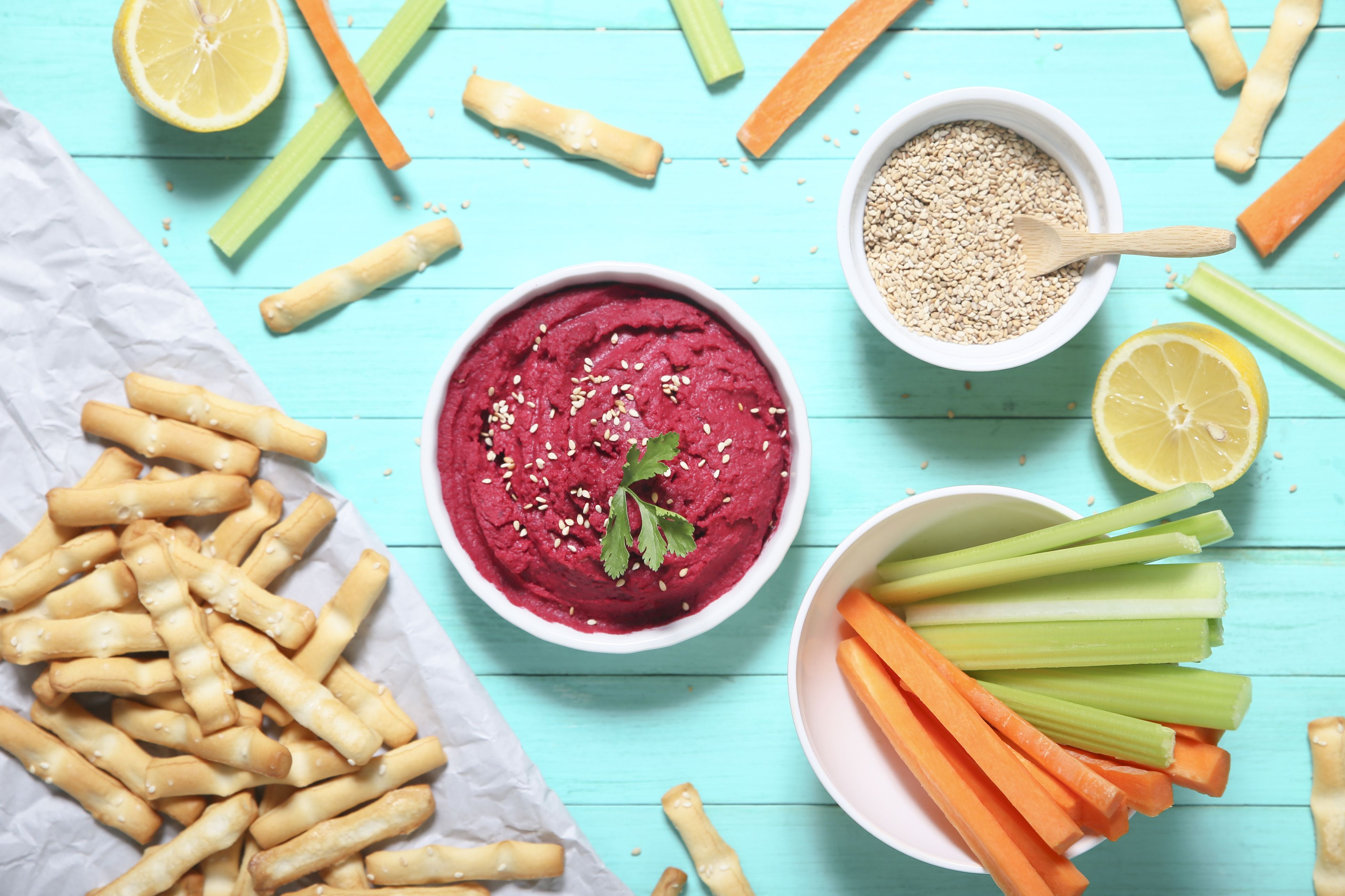At some point, you’ve probably looked down and realized you could see the bottom of that bag of popcorn. Or bowl of pretzels and hummus. Or pint of Phish Food. But it wasn’t because you were hungry necessarily, but because you were stressed out to the max.
Of course, everyone finds themselves eating their feelings at one point or another. After all, it sometimes tastes way better than having to deal with those anxious thoughts that just won’t stop swirling around your head. But while it might feel good in the moment, once you’ve licked your fingers clean, you’ll realize you’ve now got to nurse a food coma—and still haven’t addressed the actual sources of your stress head on.
The fact that you’re reading this, however, probably means you’ve already recognized an emotional-eating pattern, which is the first major step to curbing the habit both in the moment and long term. “The problem with emotional eating isn’t the eating itself, but rather what follows,” says Rachel Goldman, PhD, a psychologist in New York City who specializes in eating behaviors. That might be food guilt, additional stress, or physical discomfort from filling yourself up to the brim.
Changing a stress-eating habit can be easier said than done, but it certainly helps to have some guidance from experts. Ahead, nutrition and mental health pros chime in with their *personal* tips and tricks to short-circuit their stress-eating tendencies. Their go-to moves:
1. Get familiar with your craving patterns.
Consider keeping a log in a food journal or even in your smartphone for a bit about the times of day or circumstances when you typically get cravings, plus how you feel at those times. Maybe you get overwhelmed after dinner about tomorrow’s to-do list and go hunting for ice cream, or you know you go hard on snacking whenever you’re dealing with stressful travel. If you know your patterns, you can spot them, pause, and have an internal convo with yourself about whether you’re really hungry.

When Rebecca Scritchfield, RD, author of Body Kindness, is feeling emotionally driven hunger start to kick in, she checks in to see if this is a time of day when she usually has cravings. If it is, she makes sure she eats something that will satisfy her instead of going for the first thing she can reach. This way she can think more intuitively about her “typical needs and preferences,” she says.
2. Make a conscious effort to plan every meal and snack.
If impending deadlines routinely have you elbow-deep in a bag of something salty, be extra conscious that you’re sitting down for regularly scheduled meals (and snacks) on those days, Goldman says. Planning to eat breakfast, lunch, snacks, and dinner keeps her from mindlessly eating just because she’s feeling pressured.
“By eating regularly throughout the day, we are setting ourselves up for success,” she explains. “If stress happens (which it does because life happens) and we are physiologically hungry [rather than just emotionally hungry], then it is more difficult to make healthy choices.”
3. Do a brain-to-belly scan.
One of the key ways to eating more intuitively is to stop and check in with your brain and body to figure out what caused this hunger confusion in the first place, according to Monica Auslender Moreno, RD, a nutrition consultant for RSP Nutrition. Here’s the general thought process you want to move through, step by step:
- Start with your brain: What kind of thoughts are you having? Are you berating yourself for eating when you’re not hungry? If so, be kind to yourself, it happens. And are you eating because you’re anxious or frustrated about a relationship?
- Consider emotional intrusions: What kind of mood are you in? Are you angry about a work review? It might help to journal about your feelings at this point.
- Zero in on your throat and stomach: Are you dehydrated? When’s the last time you ate? Was the meal exciting? Why or why not?
The brain-to-belly scan is Moreno’s way of getting to know herself and her hunger cues more intimately. “Stopping and processing emotions before or during a nibble marathon can be the first step to intuitive eating enlightenment when you’re feeling cagey,” she says.
4. Take a minute to cool off from your stress first.
“If I am stressed, I may make a to-do list in order to organize my thoughts and my upcoming schedule—or I may meditate or go for a short walk,” says Alyssa Lavy, RD. “I then check in with my hunger and my desire to eat again. If I still want the food, I allow myself permission to eat that food and enjoy it.”
She warns, though, to keep an eye on portion sizes. But eating a reasonably sized snack or meal should be much easier after taking that moment to emotionally cool off. Because now, your choice to eat will be an intentional one.
5. Keep your mouth busy.
But sometimes, even after a long, reflective walk the urge to stress eat even though you’re not experiencing physiological hunger might still be there—especially if it’s a day when, say, family issues are weighing especially heavily on you. So, instead of turning to your go-to stress snack right away, Goldman suggests chewing some gum or drinking tea to hold you over. Sometimes all it takes to get your brain off of food (and back to what matters) is the sensation of putting something in your mouth to satisfy and calm the mind a little.
6. Don’t skimp on water or sleep.
It’s not uncommon to confuse dehydration or being tired with hunger or a food craving, considering that the sensations feel pretty similar. When you don’t drink enough water, your body will start relying on its stored sugar for energy, giving you a hankering for something sweet—when all you need is H20. And when you’re tired, you’ll itch for an energy boost from food even if you’re not actually hungry (and eating may just make it harder for you to fall asleep).

So before turning to snacks, hit the hay if it’s your bedtime. (That sounds obvious, but, how many nights this week did you stay up with burning eyes and a cranky stomach to finish that next episode?). To see if you’re just dehydrated, “Have a few sips of water to see if that will do the trick first,” says Goldman. If you are truly hungry, water will not be enough, she points out, so definitely eat something if you don’t feel satisfied and more energized.
7. Enjoy the snack—but do it purposefully.
If you’re turning to snacks as a momentary comfort from stress, Goldman suggests taking a “mini timeout” to just have that moment of honesty with yourself.
During those few minutes, take a few deep breaths and lean into what it is you’re feeling before giving into the urge to eat immediately. “If someone mindlessly eats ice cream they may feel guilty about it afterwards and that feeling of guilt will impact their next thoughts, emotions, and behaviors,” Goldman explains.
But if you take 15 minutes to check in with yourself? Even if you ultimately decide to eat the ice cream (which is tooooootally okay and honestly sometimes just necessary, let’s be real), it will feel like a conscious decision and spare you from creating a cycle of crappy feelings.
Source: Read Full Article
